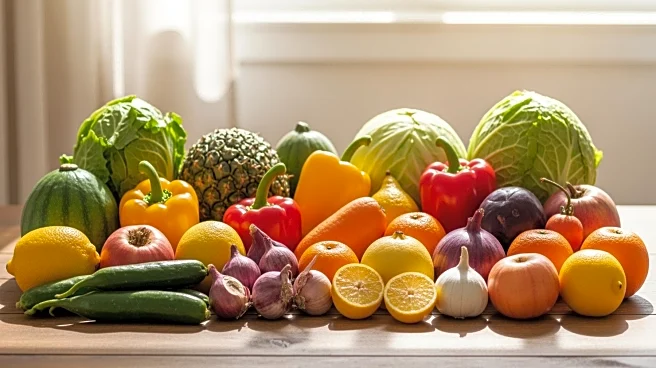What's Happening?
Ministers and officials from across the Americas convened in Brasilia to discuss the future of agriculture and food systems. The meeting, organized by the Brazilian government and the Inter-American Institute
for Cooperation on Agriculture, focused on creating a new narrative for agriculture that emphasizes sustainability and resilience. Discussions highlighted the role of science, technology, and innovation in transforming agricultural practices. The ministers stressed the importance of differentiating between good and bad agricultural systems and promoting those that are environmentally friendly. The event also addressed the challenges of food security, energy transition, climate change, and social inequality.
Why It's Important?
Agriculture is a critical sector for food security and economic stability in the Americas. The push for a new narrative reflects a growing recognition of agriculture's potential to contribute positively to environmental and social challenges. By focusing on sustainable practices, the region can enhance its food production capabilities while minimizing negative environmental impacts. This approach aligns with global efforts to address climate change and promote sustainable development, potentially leading to improved livelihoods for rural communities and greater resilience against climate-related disruptions.
What's Next?
The discussions in Brasilia are expected to lead to the development of new public policies that integrate private sector participation and leverage technological advancements. Countries may begin implementing strategies that combine traditional knowledge with modern technology to enhance agricultural productivity and resilience. The focus on sustainability could drive investments in research and development, fostering innovation in agricultural practices.
Beyond the Headlines
The emphasis on sustainable agriculture highlights the need for educational initiatives to change public perceptions about farming. It also underscores the importance of international cooperation in addressing global food security challenges. Long-term shifts in agricultural policy could result from these discussions, potentially influencing global food systems and trade dynamics.










